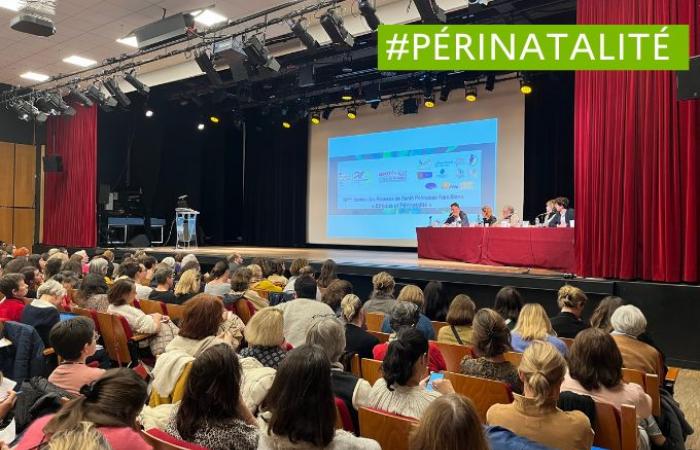Luc Ginot, Director of the Public Health Department at ARS Île-de-France, opened the day by welcoming the actions carried out by health networks in perinatal care, and the exemplary nature of collaborative, interdisciplinary and transversal work in perinatal care… Aware of the difficulties which persist and even increase, he recalled the Agency’s commitment to supporting partners and remaining mobilized on issues relating to access to voluntary termination of pregnancy, equality between women and men and ensuring the rights of the most deprived (state medical aid, accommodation, etc.).
Fabrice Gzil, associate professor of philosophy and ethics at the Faculty of Medicine of the University of Paris Saclay and co-director of the Espace Éthique Île-de-France, played the role of guiding light during this event. Thanks to his expert interventions, he encouraged in-depth reflection for each round table. From the opening, it highlighted the key points to consider in the field of ethics: the normative framework, the importance of constant questioning of practices, the commitment to the values carried in the field of perinatality , as well as the need for explicit consent.
The interventions and discussions took place around the 4 main principles of ethics and through themes relating to:
- The therapeutic relationship : with examples on breastfeeding, the choice of method for a voluntary termination of pregnancy, the patient experience of childbirth.
- Inequalities and precariousness : with the notion of differentiated care, the promotion of social work in supporting the care of women then with the presentation of an innovative system “the personalized support unit” which adapts to constraints and needs vulnerable women.
- Particular situations of heightened vulnerabilities : particularly in the context of the resuscitation of extremely premature babies and then in the work of child protection, both from a medical and legal point of view, in a context of intra-family violence.
- Screening and prevention : around postpartum depression, screenings for Down syndrome and deafness with the point of view and testimonies of parents.
This day dedicated to ethics and perinatality sparked collective reflection on subjects that are constantly being questioned, in connection with our ethical, legal and moral benchmarks.
What emerges is the promotion of “care” work, “taking care”, and “non-technical” skills by emphasizing the training of health professionals in communication in order to promote informed and shared decisions. Attention was also paid to the necessary recognition of social work, an essential role in caring for the most vulnerable women.
At the heart of this day, we retained the importance of reassessing the caregiver-patient relationship: support, exchange and discussion, to be carried out with “ gentleness, tact and delicacy ”, without trying to convince while ensuring good understanding on the part of the person concerned.
It is essential to allow women and parents to express their right to say “no”. This refusal must be able to be accepted without judgment, without calling into question the quality of the information provided, nor the work of the professionals.
This enriching day invites us to continue reflection and to constantly question professional practices in order to always better support women, parents, children and families.






